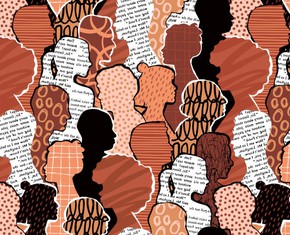The views expressed in our content reflect individual perspectives and do not represent the authoritative views of the Baha'i Faith.
Since its origins in the middle of the 19th Century, the word Baha’i–like the words Christian or Muslim or Buddhist–has become a universal noun.
Now understood without any need for translation in just about every language and every country of the world, “Baha’i” means “follower of the light” or “follower of the glory.” Of course, it also refers to followers of the teachings of Baha’u’llah, the prophet and founder of the Baha’i Faith.
Baha’u’llah–a title that means “the Glory of God”—was born Mirza Husayn Ali in 1817 in Tehran, Persia. The son of a nobleman and wealthy landowner, Baha’u’llah declined the lucrative ministerial position the government offered him, and instead spent his energies on social and philanthropic causes devoted to eradicating Persia’s poverty. By the early 1840s, Baha’u’llah had become known across Persia as The Father of the Poor. A sensitive poet and mystic, Baha’u’llah then became one of the leading voices of the Babi movement, the turbulent spiritual revolution that swept Persia in the late 1840’s. Imprisoned in chains after The Bab’s execution in 1850, Baha’u’llah announced the emergence of the Baha’i Faith in 1863 and spent the last forty years of his life in prison and exile for proclaiming the Baha’i teachings.
Despite jail, exile, torture and even death as a result of their beliefs, the early Baha’is flocked to Baha’u’llah’s new Faith, which challenged orthodoxy with its major principles: the existence of one God, one universal religious truth and one human race. Dedicated to global peace and non-violence; to the harmony of science, logic and reason with religion; to the equality of men and women; to the abolition of all prejudice; to the eradication of the extremes of wealth and poverty; this progressive new belief system drew extreme opposition and persecution from the rigid, conservative Islamic clerical and governmental authorities in the region of its birth.
But despite that continuing persecution, the Baha’i Faith has spread across the face of the Earth. Millions of people from every nationality, ethnicity, economic and social class, religion and origin have become Baha’is. They follow Baha’u’llah’s teachings of unity, justice and the independent investigation of truth:
The essence of all that We have revealed for thee is Justice, is for man to free himself from idle fancy and imitation, discern with the eye of oneness His glorious handiwork, and look into all things with a searching eye. – Tablets of Baha’u’llah, p. 156.
So what does it really mean to be a Baha’i? Abdu’l-Baha, the son of Baha’u’llah and the exemplar of his teachings, explained the definition of a Baha’i in a talk given in Paris in 1912:
Let your actions cry aloud to the world that you are indeed Baha’is, for it is actions that speak to the world and are the cause of the progress of humanity. If we are true Baha’is speech is not needed. Our actions will help the world, will spread civilization, will help the progress of science, and cause the arts to develop. Without action nothing in the material world can be accomplished, neither can words unaided advance a man in the spiritual Kingdom. It is not through lip-service only that the elect of God have attained to holiness, but by patient lives of active service they have brought light into the world. Therefore strive that your actions day by day may be beautiful prayers. Turn towards God, and seek always to do that which is right and noble. Enrich the poor, raise the fallen, comfort the sorrowful, bring healing to the sick, reassure the fearful, rescue the oppressed, bring hope to the hopeless, shelter the destitute! This is the work of a true Baha’i …. – Abdu’l-Baha, Paris Talks, p. 80.
Baha’is aspire to lead noble, kind and loving lives. But no Baha’i reaches perfection–every Baha’i takes the journey, strives for spiritual excellence and attempts to live up to Baha’u’llah’s selfless example of service to humanity.
Ultimately, Baha’is understand, this act of striving for spirituality defines us as human. Like all people, we try, we sometimes fail, we try again, and as a result we grow spiritually. Our souls develop, deepen and mature, and we progress from selfishness to selflessness, from a focus on our narrow individual concerns to the concerns of the planet and the human race as a whole. When we attempt to lead “patient lives of active service,” the process gradually remakes those who exert themselves into aware, loving and other-directed people who can bring light into the world.
















Comments
Sign in or create an account
Continue with Googleor